
Senior physics writer Emily Conover joined Science News in 2016. She has a Ph.D. in physics from the University of Chicago, where she studied the weird ways of neutrinos, tiny elementary particles that can zip straight through the Earth. She got her first taste of science writing as a AAAS Mass Media Fellow for the Milwaukee Journal Sentinel. She has previously written for Science Magazine and the American Physical Society. She is a two-time winner of the D.C. Science Writers’ Association Newsbrief award, and a winner of the Acoustical Society of America’s Science Communication Award.

Trustworthy journalism comes at a price.
Scientists and journalists share a core belief in questioning, observing and verifying to reach the truth. Science News reports on crucial research and discovery across science disciplines. We need your financial support to make it happen – every contribution makes a difference.
All Stories by Emily Conover
-
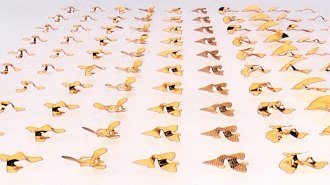 Physics
PhysicsWhirling maple seeds inspired these tiny flying sensors
Scientists envision that small objects modeled after maple tree whirligigs could be used to monitor the environment.
-
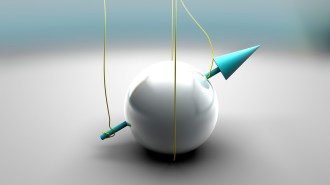 Quantum Physics
Quantum PhysicsOne of nature’s key constants is much larger in a quantum material
The fine-structure constant is 10 times its normal value in the material, giving a peek into what physics in an alternate universe could look like.
-
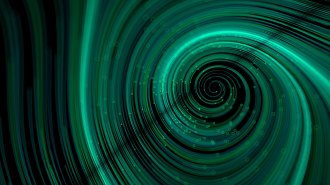 Physics
PhysicsNew ‘vortex beams’ of atoms and molecules are the first of their kind
Twisted beams of atoms and molecules join other types of corkscrew beams made of light or electrons.
-
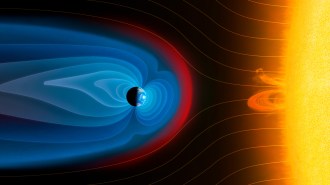 Physics
PhysicsPhysicists caught protons ‘surfing’ on shock waves
A laser experiment could help scientists understand how protons reach high energies traveling through the cosmos.
-
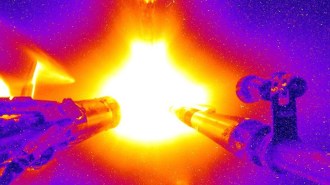 Physics
PhysicsWith a powerful laser blast, scientists near a nuclear fusion milestone
A National Ignition Facility experiment spawned nuclear fusion reactions that released nearly as much energy as was used to ignite them.
-
 Physics
PhysicsWindbreaks, surprisingly, could help wind farms boost power output
Wind farm performance could be improved by 10 percent by using low barriers to increase the wind speed directed at the turbines, simulations suggest.
-
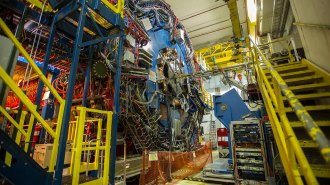 Physics
PhysicsColliding photons were spotted making matter. But are the photons ‘real’?
Smashups of particles of light creating electrons and positrons could demonstrate the physics of Einstein’s equation E=mc2.
-
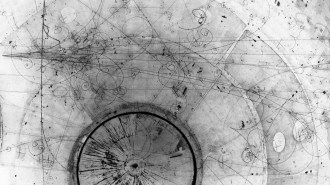 Particle Physics
Particle PhysicsHow particle detectors capture matter’s hidden, beautiful reality
Old and new detectors trace the whirling paths of subatomic particles.
-
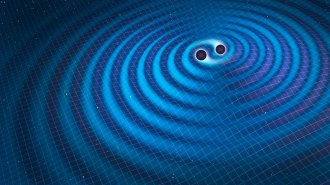 Physics
PhysicsA bounty of potential gravitational wave events hints at exciting possibilities
Of about 1,200 possible events, most are probably false alarms, but some could be ripples in spacetime that are especially hard to spot.
-
 Physics
PhysicsBlack holes born with magnetic fields quickly shed them
New computer simulations show one way that black holes might discard their magnetic fields.
-
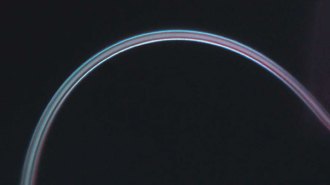 Materials Science
Materials ScienceThese weird, thin ice crystals are springy and bendy
Specially grown fibers of frozen water bend into curves and spring back when released.
-
 Astronomy
AstronomyScientists spotted an electron-capture supernova for the first time
A flare that appeared in the sky in 2018 was an electron-capture supernova, a blast that can occur in stars too small to go off the usual way.